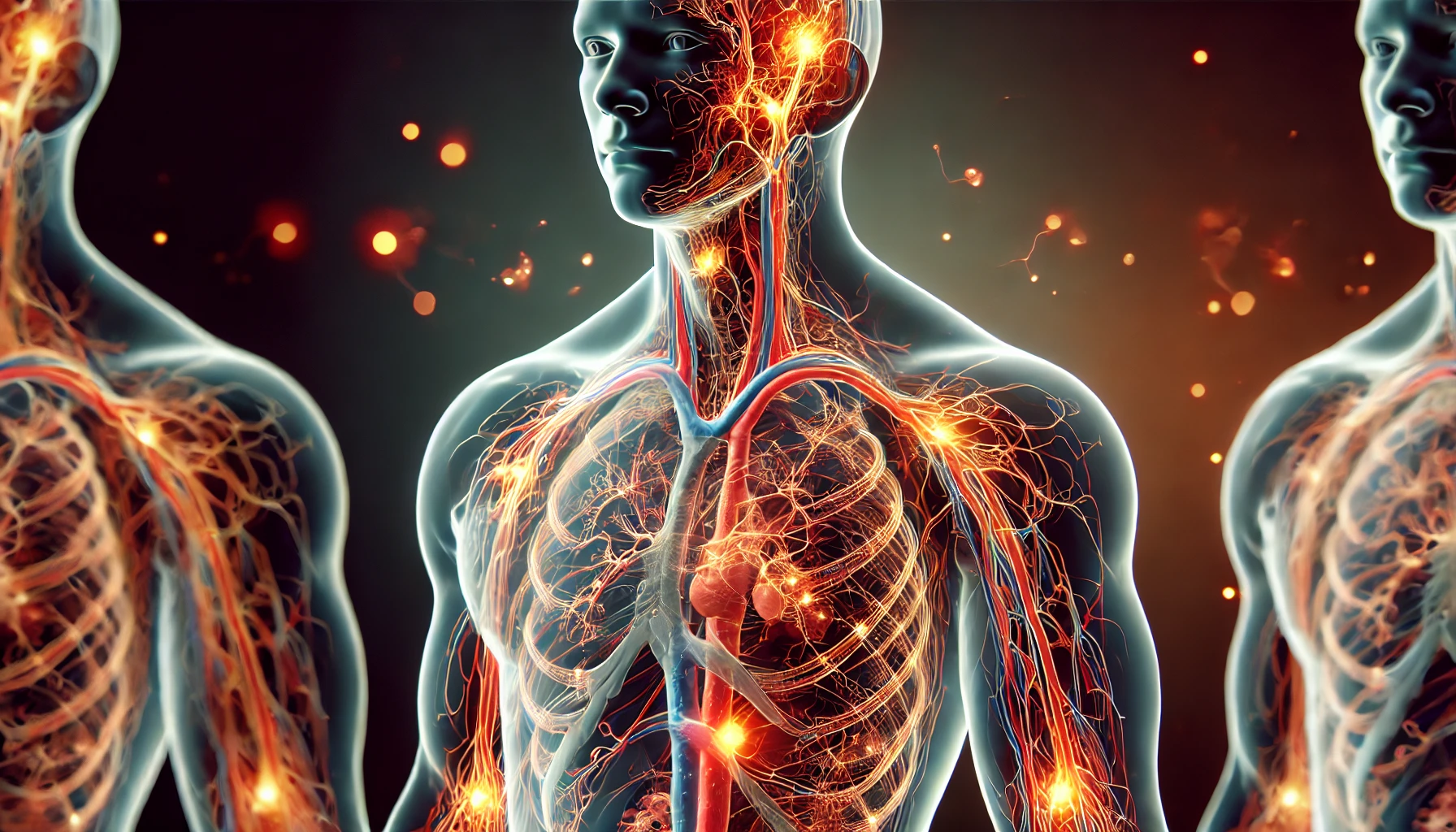Health Notice: This article was written using the Consensus AI Academic Search Engine. It is intended solely for informational purposes and should not be considered medical advice. Always consult a licensed healthcare provider for diagnosis, treatment, or medical guidance. Please refer to the full Disclaimer at the end of this article.
Inflammation is a complex biological response of body tissues to harmful stimuli such as pathogens, damaged cells, or irritants. It is a protective response involving immune cells, blood vessels, and molecular mediators. The primary purpose of inflammation is to eliminate the initial cause of cell injury, clear out necrotic cells and tissues damaged from the original insult, and initiate tissue repair.
Types of Inflammation
Inflammation can be broadly categorized into two types:
- Acute Inflammation: This is a short-term process occurring in response to tissue injury, usually appearing within minutes or hours. It is characterized by the classic signs of inflammation: redness, heat, swelling, pain, and loss of function. Acute inflammation involves the movement of plasma and leukocytes (especially granulocytes) from the blood into the injured tissues.
- Chronic Inflammation: This is a prolonged inflammatory response that involves a progressive change in the type of cells present at the site of inflammation. It is characterized by simultaneous destruction and healing of the tissue from the inflammatory process. Chronic inflammation can result from failure to eliminate the cause of acute inflammation, an autoimmune response to a self-antigen, or a chronic irritant of low intensity that persists.
Inflammation and Diseases
Ischemic Stroke
Inflammation plays a significant role in the pathophysiology of ischemic stroke. Cerebral ischemia initiates a complex cascade of events at genomic, molecular, and cellular levels, where inflammation is a critical component. The Trial of Org 10172 in Acute Stroke Treatment (TOAST) classified ischemic stroke into subtypes, each associated with different patterns of immuno-inflammatory activation. For instance, patients with cardioembolic stroke subtype exhibit higher levels of inflammatory markers such as TNF-α, IL-6, and IL-1β compared to those with lacunar stroke subtype, which shows lower levels of these markers1.
Alzheimer’s Disease
Systemic inflammation is also implicated in the pathogenesis of Alzheimer’s disease (AD). Neuroinflammation, characterized by the activation of CNS cells and excessive expression of immune cytokines, is suspected to be a principal factor in the higher risk for sporadic AD. Pro-inflammatory cytokines like IL-1 and IL-6 are found at higher levels in patients with AD. Anti-inflammatory strategies targeting these cytokines are being explored as potential therapeutic approaches. For example, a proposed clinical trial aims to use oral type 1 interferons (IFNs) to reduce IL-1 and IL-6 secretion, potentially slowing cognitive decline in AD patients2.
Conclusion
Inflammation is a fundamental biological response that plays a crucial role in various diseases. Understanding the mechanisms and effects of inflammation in different conditions, such as ischemic stroke and Alzheimer’s disease, can lead to better therapeutic strategies and improved patient outcomes. The ongoing research into anti-inflammatory treatments highlights the potential for new interventions that could mitigate the adverse effects of chronic inflammation in these diseases.
Disclaimer
The content in this blog post was generated using Consensus, an AI-powered academic search engine, and is based on publicly available scientific literature. While we strive to provide accurate, up-to-date, and well-researched information, this content is intended for informational and educational purposes only.
It does not constitute medical advice, diagnosis, or treatment. Always consult a qualified healthcare professional before making decisions related to any medical condition, treatment, or medication.
The AI system’s analysis may not account for all perspectives, ongoing research, or individual circumstances, and should not replace professional expertise. Neither the blog publisher nor the developers of the Consensus AI tool are liable for any decisions or actions taken based on this content.
Use of this information is at your own risk. Where provided, citations link to original scientific studies for reference only—these should be reviewed independently and interpreted with the support of a qualified medical or research professional.
If you are experiencing a medical emergency, please seek immediate care from a healthcare provider or call emergency services.
